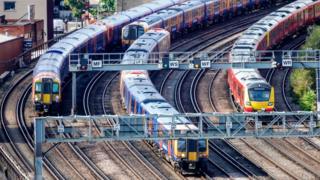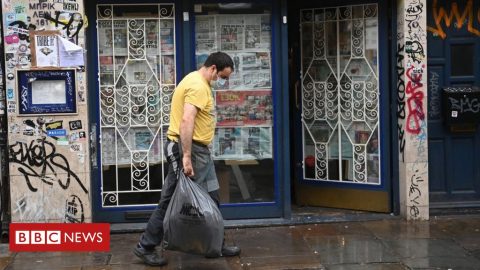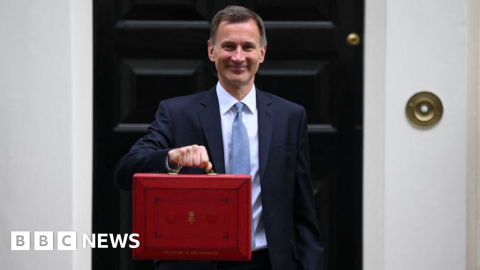 Image copyright Getty Images
Image copyright Getty Images The government has agreed new emergency deals with train companies.
Under the arrangement, taxpayers will continue to cover any losses on the railways, caused by low passenger numbers, for another 18 months.
Throughout that period ministers hope to carry out broader reforms to Britain’s railways.
They will consider adopting a concessions-based system in the longer term, whereby train companies are paid a fixed fee to run services.
It marks the end of rail franchises, which have been in place since the 1990s.
When the country went into lockdown, the government agreed to pay the losses of train companies which had been hit by falling ticket revenue.
It meant trains were still able to run, even with very few passengers.
Since then, passenger numbers have slowly risen but they are still less than half their pre-pandemic levels.
So far, the bill for carrying the losses of train companies has run to at least £3.5bn and the Department for Transport has said “significant taxpayer support will still be needed” under the new agreements. But it has reduced the fees that train companies will receive for running services.
In a statement, Transport Secretary, Grant Shapps said: “The model of privatisation adopted 25 years ago has seen significant rises in passenger numbers, but this pandemic has proven that it is no longer working.”
He said the move to a new system would end “uncertainty and confusion about whether you are using the right ticket or the right train company”.









Recent Comments